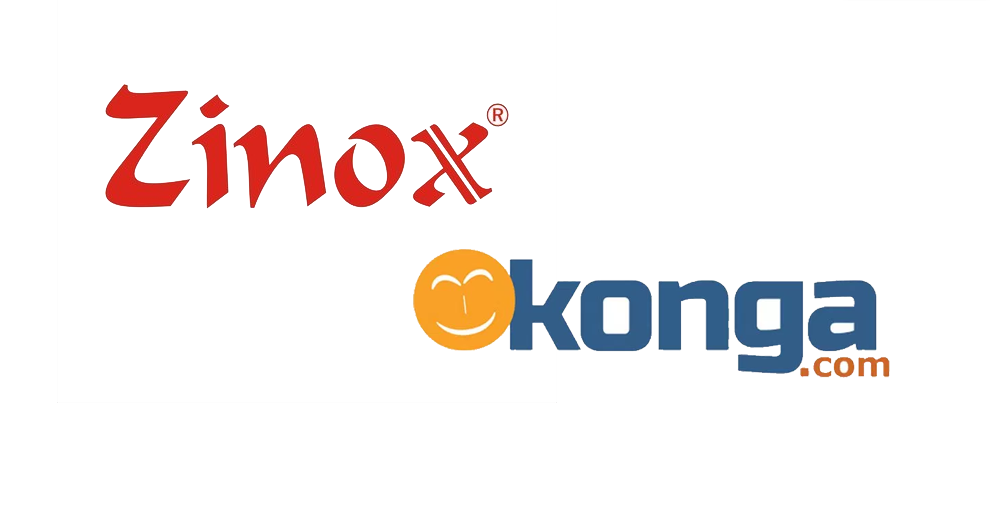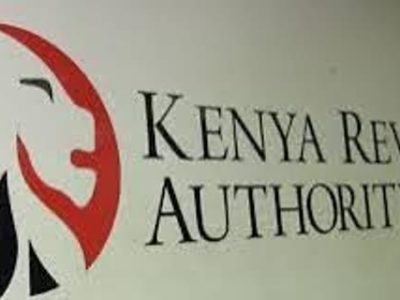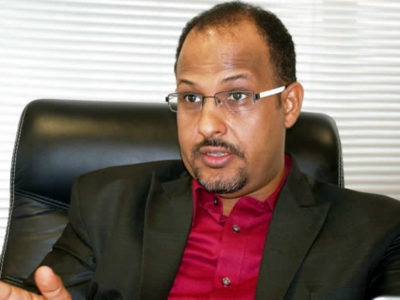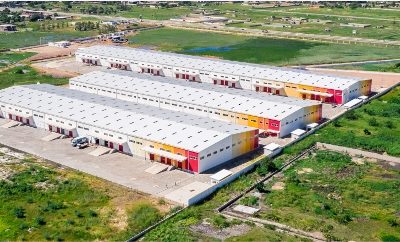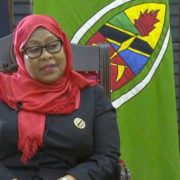Rich and influential Nigerians as well as state and local governments and Non-Governmental Organizations (NGO) have been urged to borrow a leaf from the strategy deployed by the Zinox Group and Konga to reach and deliver much-needed succour to poor and needy families across Nigeria as the lockdown occasioned by the COVID-19 pandemic bites harder.
This was the view of founder, Stanbic Bank, Atedo Peterside.
Peterside, who doubles as the Chairman, Anap Foundation COVID-19 Think-Tank, made this suggestion when he spoke as a guest on a televised interview on Africa Independent Television (AIT) on Wednesday.
The Rivers-born entrepreneur, who submitted that the country needed to improve some of the approaches it was deploying in fighting the pandemic, affirmed that there are three pillars in the COVID-19 fight: medical, governance and communication.
However, he disclosed that safety nets, deemed as one of the most important seven priority items identified by the Anap Foundation Think-Tank under medical, was an area that a lot more needed to be done.
‘‘Actually, the number of poor people in Nigeria is estimated at 80 million by NBS out of 180 million people. If you want the estimated 80 million poor Nigerians to remain in one place in view of the lockdown, you have to have a plan for them. I am not one to waste my time blaming government. If you do the numbers, we have an estimated 80 million classified and confirmed as being poor, add the next 20. I assume that the next 20 million can feed themselves because they are not poor. It then means that the richest 80 million can feed themselves and can probably also contribute or help to feed the bottom 80 million.
‘‘Even if one person in the top 80 million feeds at least one person in the bottom 80, we have solved the problem and that is without government intervention. A member of the Anap Foundation COVID-19 Think-Tank, Mr. Leo Stan Ekeh, owner of Zinox Group and Konga is going out to feed 7000 families every day for 14 days. This is to show you that the rich people can help the government solve the problem. So, we want more examples like Leo Stan Ekeh,’’ he counselled.
Continuing, the renowned investment banker said: ‘‘What we don’t want is rich people constantly being distracted. Instead of coming to join people like Leo Stan Ekeh to feed the poor, suddenly somebody dangles that there is some money at Central Bank, the same rich people will leave the task of feeding the poor, get distracted and begin to chase or apply for loans for the future. Can we just leave all that and focus first on the problem of the poor? Believe me, if we don’t solve that problem, the poor will infect the rich and we will all die.
‘‘The total number of poor people in Nigeria, using official NBS estimates, is 80 million. The 2.6m households being catered for by the Federal Government does not cover the 80 million people. So, if the Federal Government is trying to look after 2.6m households out of them, I am saying the richer Nigerians, state governments, LGAs, NGOs must now join to look after all of the 80 million poor people.
‘‘I am not saying Federal Government. Leo Stan Ekeh does not work for the Federal Government. President Buhari did not stop the rich people from trying to feed the poor. Let the rich people get up. Every state in this Federation has very rich people,’’ he declared.
Also toeing the line of thought espoused by Peterside, Dr. Mutairu Ademu, an economist, commended the strategy deployed by the Zinox Group in feeding the poor through its staff across the country; even as he noted that such gestures ought to be rewarded by the government.
‘‘It is a very ingenious strategy, one that is guaranteed to reach the poor and actual needy people. Well, I am not surprised because I have followed the innovativeness of this Group for nearly 20 years. This excellent strategy solves the problem of politics and tribe. This is because executing such initiatives through politicians will bring an unavoidable level of partisanship into it. Some politicians will use the palliatives to reward their loyal supporters and party stalwarts, thereby leaving people from other parties in the dust. In states where a particular political party is in charge, people from other parties will not be catered for; forgetting that those people from other political parties are also needy Nigerians and citizens of the state. So, this approach by the Zinox Group solves that. Also, with respect to the issue of tribe which will manifest in some people getting a larger share than others, the Zinox Group strategy of using staff to distribute the palliatives also resolves this.
‘‘This is why I urge other Nigerian corporate billionaires who preferred to rush to donate money to the government to consider borrowing a leaf from the approach of the Zinox Group and Konga which is guaranteed to reach the last mile. After all, there is no Nigerian worker that holds down full employment in two organizations at the same time. So, imagine other Nigerian billionaires and corporate organizations including the banks using their staff in various branches across Nigeria to feed the poor around them. We would have achieved so much in reaching the poorest of the poor.
‘‘All it costs the government in encouraging or rewarding this intervention would be some tax rebates or holidays which will not cost the government much. In fact, I suggest the government consult people like Leo Stan Ekeh more, especially on important public policy and economic-related issues. In fact, rather than being hostile to these entrepreneurs and frustrating them with double taxation, the government should rely on them more for necessary assistance; especially considering how they rallied round the government in supporting needy Nigerians in this emergency,’’ he said.
Meanwhile, the distribution of the palliatives by staff of the Zinox Group and Konga has kicked off, with beneficiaries already starting to receive the essential items being donated across the country.
This was confirmed by Group Head, Corporate Communications, Gideon Ayogu.
‘‘Distribution of the essential food items – which include medium bags of rice, tomato paste and cooking oil – has commenced. We were able to leverage on the delivery capabilities of Konga to get the items across to staff in various parts of the country. By the end of this week, we expect the overwhelming majority of the beneficiaries to have received their items. Also, evidence of these donations by our staff will be rigorously verified by the audit team created especially for this purpose in order to ensure that the intended beneficiaries actually benefit,’’ he revealed.


